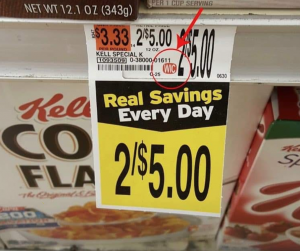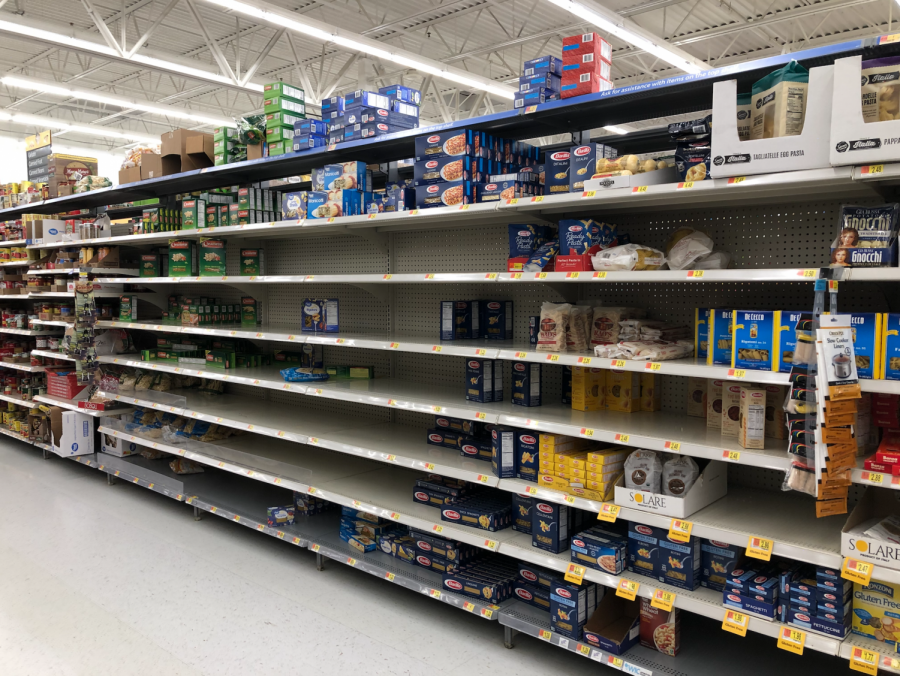Explained: COVID-19 affects on WIC recipients
Pasta aisle at Walmart in La Crosse, WI.
April 23, 2020
The Special Supplemental Nutrition Program for Women, Infants, and Children (WIC) is a federal program that helps pregnant and breastfeeding mothers and their infants or children under five years old receive nutritional assistance. Recipients must be considered low-income or at risk nutritionally.
The program was piloted in 1972 to ease concerns of malnutrition among underprivileged mothers and their children. Three years later, United States legislation declared WIC as a permanent federal program.
Today, over 50 percent of all newborns in the U.S. receive WIC benefits. WIC “serves nearly 7 million mothers and young children per month through 10,000 clinics nationwide in all 50 states.”
WIC benefits, such as food packages, vary with each state. Wisconsin’s WIC-approved foods include baby food and formula, fruits, vegetables, whole grains, and several other nutritious options. WIC also provides additional support such as information on nutrition, breastfeeding, and essential health services.
Although many businesses have closed due to COVID-19, federal supplement programs have not been affected. Hence, WIC has not suspended services due to COVID-19. WIC agencies are conducting appointments with families by phone and all WIC participants will continue to receive benefits.
Programs such as WIC have contingencies built-in to allow them to respond to realities such as COVID-19. But, there have been shortages of WIC products and it has been reported that theses shortages are due to ‘panic buying.’
People who are not supported by WIC can purchase WIC food items, but they are encouraged not to because these items are designated for WIC recipients, whereas other consumers can buy products that are not solely marked as WIC.
Kelli Sullivan, a teacher in the La Crosse school district told Buzzfeed News that she relies on WIC, and has a “fine-tune system” for shopping.
She explained that since panic shopping began, she must go to multiple stores in La Crosse to get staples such as eggs, bread, and cheese that are WIC labeled because panic buyers are purchasing WIC-eligible items instead of their usual items in order to “stock up” during the pandemic.
It is important for consumers to read the label before they purchase items to make sure that they are not purchasing WIC products that could better benefit WIC designated users. The picture below demonstrates the WIC symbol that can be found on labels.

There are 38 Wisconsin WIC approved grocers and pharmacies in La Crosse County. You can find them by following this link.
Those who are eligible to apply for WIC in La Crosse County can contact the WIC office at [email protected] or apply here.







